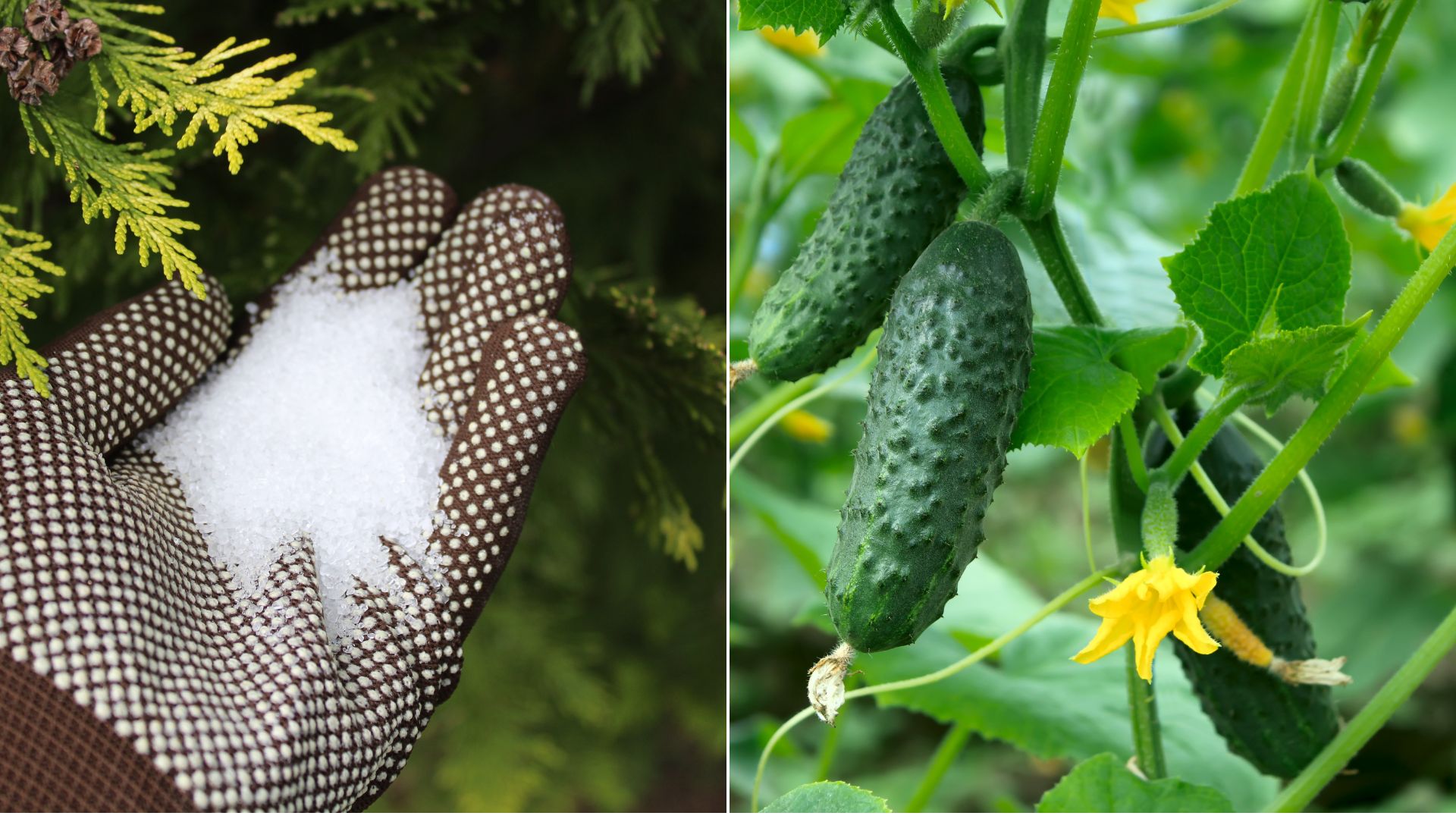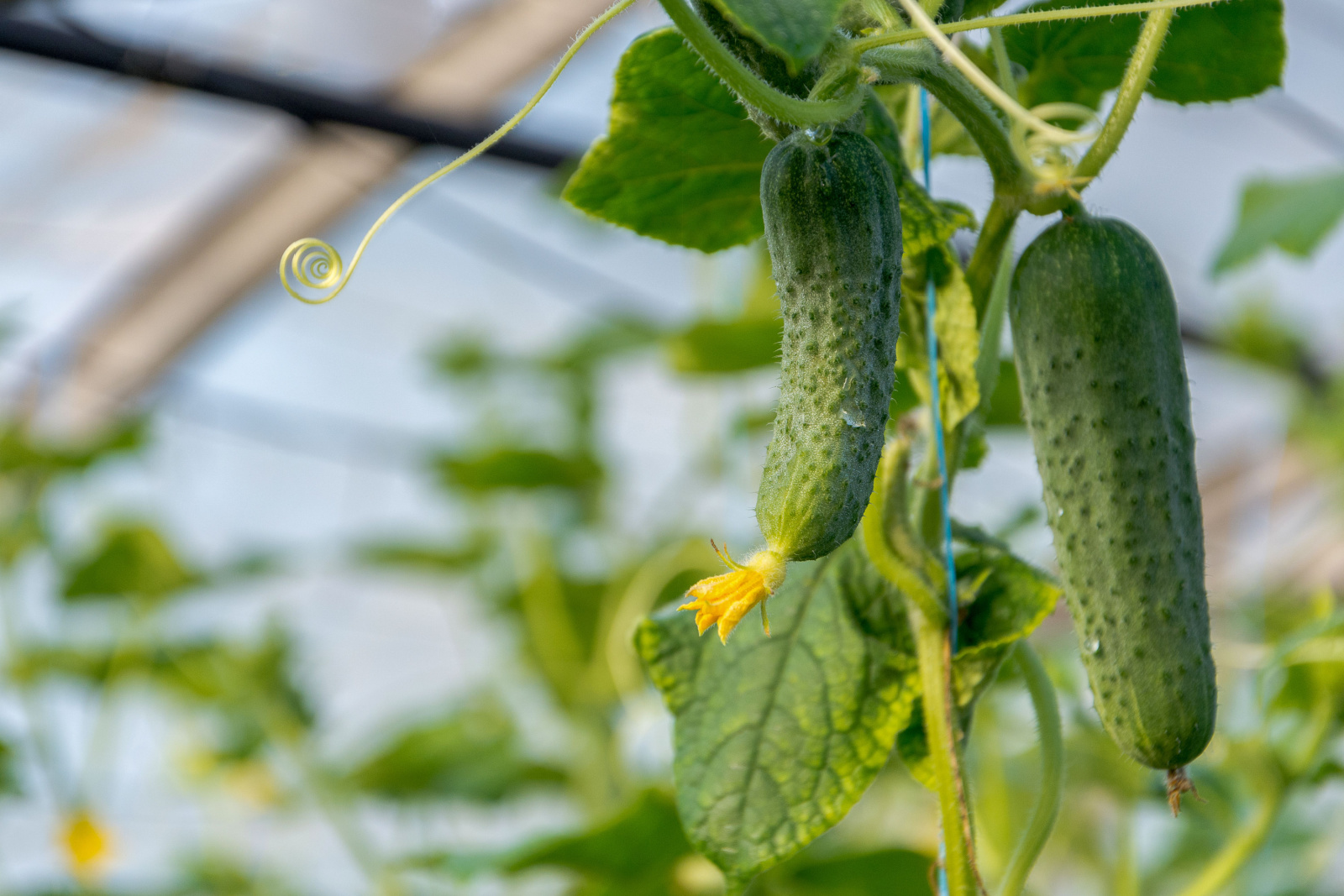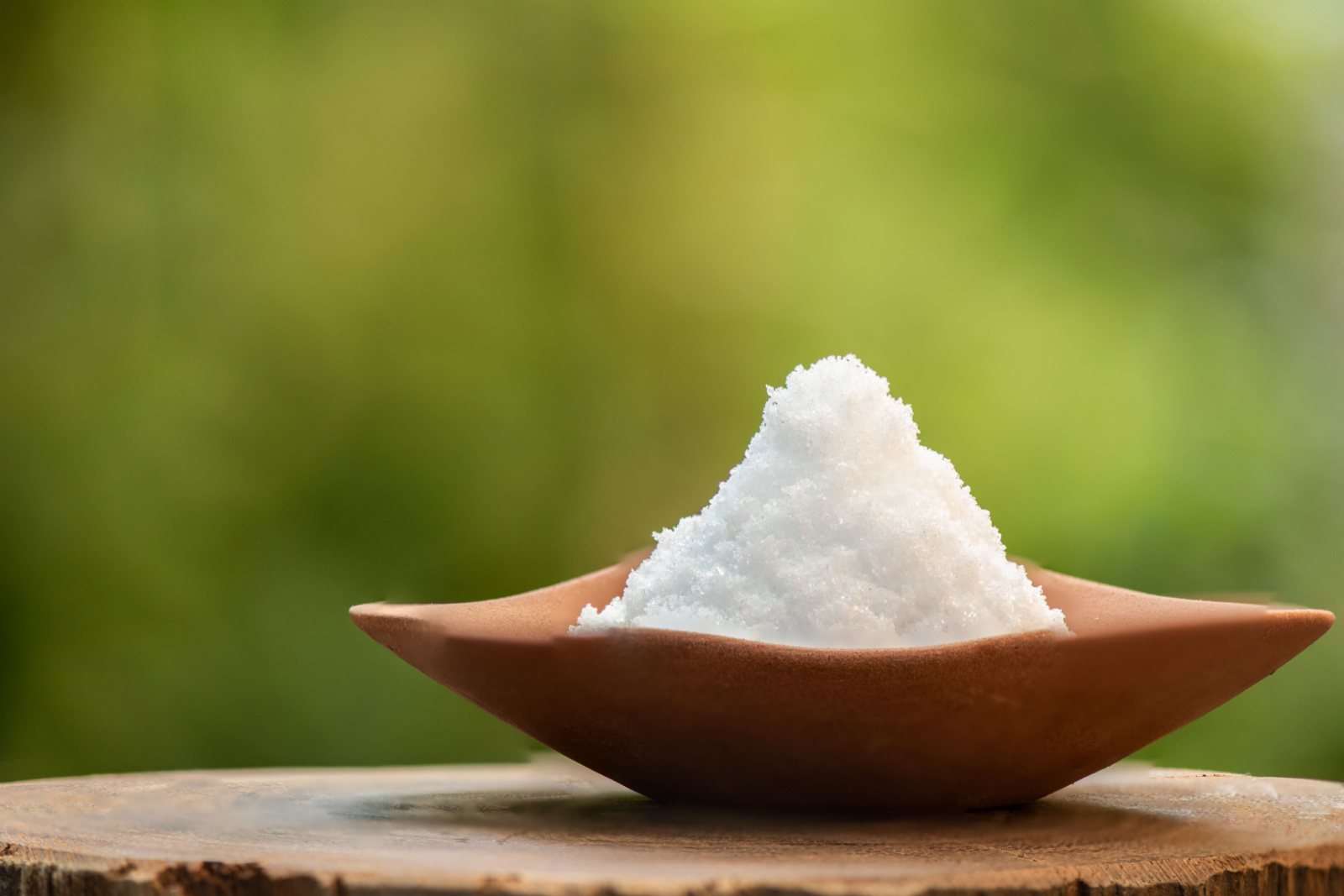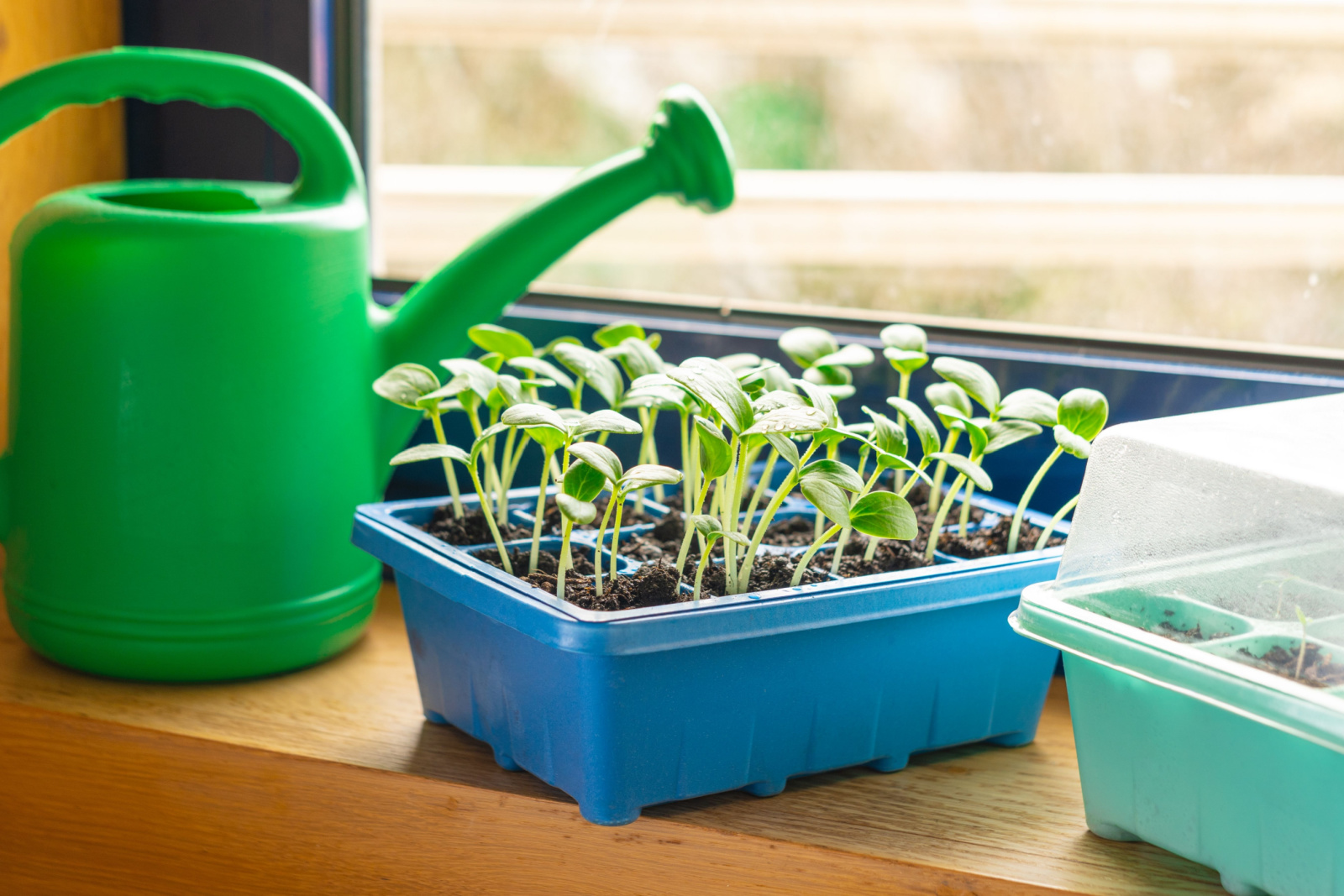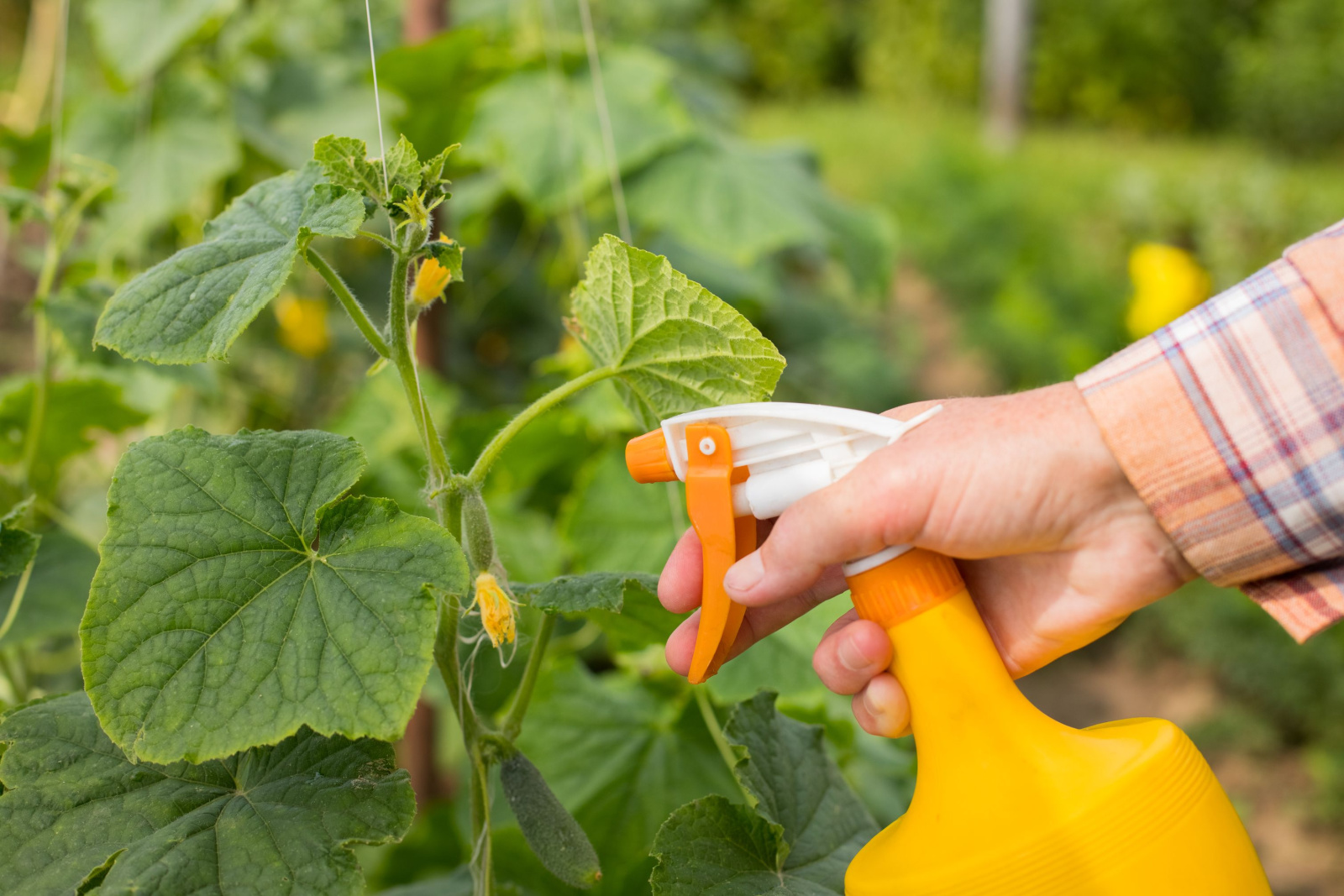Growers often decide on adding cucumbers to their veggie gardens because of their low care requirements and, of course, their amazing flavor.
It’s not hard to get a bountiful cucumber harvest; simply ensure its basic needs and you’ll be highly rewarded.
However, there are some growth boosters that can help you on this journey. One of them is definitely Epsom salt.
Let’s learn why adding Epsom salt will help your cucumbers thrive!
Quick Cucumber Growing Tips
Growing cucumbers isn’t rocket science because these veggies have only a few basic requirements.
You can find different cucumber varieties but we can sort them into 2 main types: vining and bush cucumbers.
The main difference between the two is in fruit production and size. If you decide on vining varieties, you can expect an abundance of delicious fruits.
On the other hand, bush varieties are more compact and suitable for containers or small home gardens.
No matter which type you select, it’s important to plant them in free-draining soil. Cucumber watering needs are moderate and an inch of water weekly will suffice.
You’ll need to boost nutrient levels by adding fertilizer to the soil once your cucumbers start producing flowers. Harvest your cucumbers using clippers to avoid damaging the leaves.
So, how can Epsom salt aid cucumber development? Let’s learn all its benefits.
Benefits Of Epsom Salt For Cucumbers
This salt type is used mainly due to the chemical compounds it contains, precisely magnesium and sulfur. Both of these nutrients can enhance plant growth.
Magnesium in the soil helps the roots to absorb primary nutrients, such as nitrogen and phosphorus. These nutrients are responsible for photosynthesis, which results in leaf and fruit production.
Chemical fertilizers may not contain high quantities of magnesium and that’s where Epsom salt steps in. You can’t use this salt type on plants that don’t need a lot of magnesium but plants such as cucumbers, peppers, and tomatoes will definitely love it.
Sulfur deficiency in cucumber plants may lead to several issues and can significantly increase susceptibility to diseases.
If your cucumber has yellow leaves, produces small fruits, or displays stunted growth, it may be due to sulfur deficiency. You can fix this issue by irrigating your cukes with an Epsom salt solution.
How To Use Epsom Salt
Now let’s see when to use this salt type, how to prepare the solution, and how to apply it.
When To Use
The frequency of using Epsom salt on cukes mainly depends on why you’re using it. For instance, if you just want to encourage further growth and enhance fruit production, a single application of Epsom salt will do the job.
You can apply the solution somewhere in the middle of the growing season to get more fruits during the harvest.
If your cucumbers show signs of nutrient deficiency, you can apply the solution again after a month. Add another round of Epsom salt about 5 weeks after the second application if you grow your cukes in containers.
Wait approximately 6 weeks for the third application if you planted your cucumbers in the ground. Do not overuse Epsom salt because overly large doses may put your cukes in a life-threatening situation.
How To Apply
I’ll show you two ways to apply this solution. The first one is to dilute ½ a tbsp of salt in a gallon of water, stir it well, and add it to a watering can. Apply the solution in the same way you irrigate your cucumbers.
Another method is to dilute 2 tbsp of salt into a gallon of water and pour it into a spray bottle. Spray over the cucumber leaves to help the foliage absorb sulfur and magnesium.
Continue with the usual cucumber watering schedule.
Using Epsom salt on cucumbers has many benefits. It will not only encourage healthier growth but it will also help you fix some issues. This inexpensive method definitely deserves a try!

